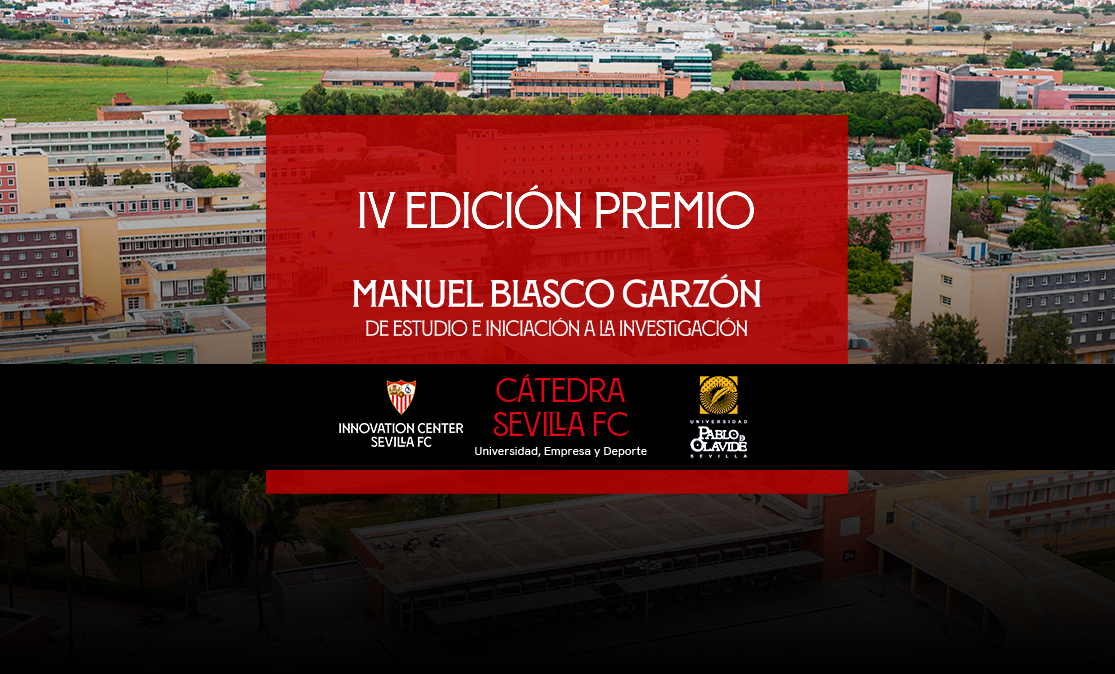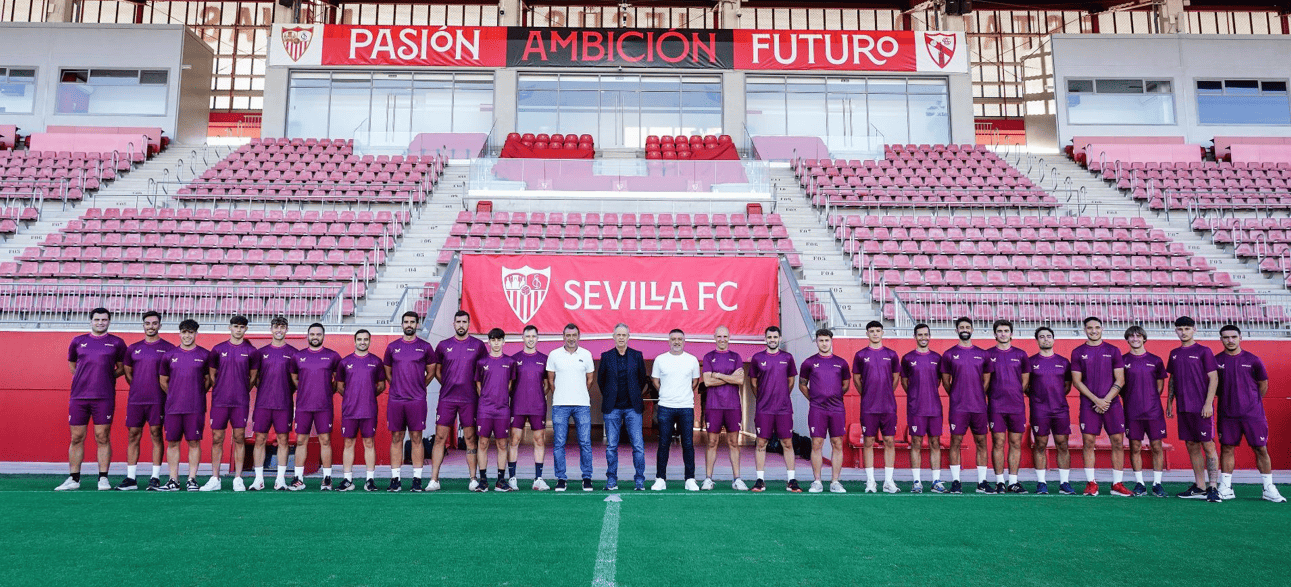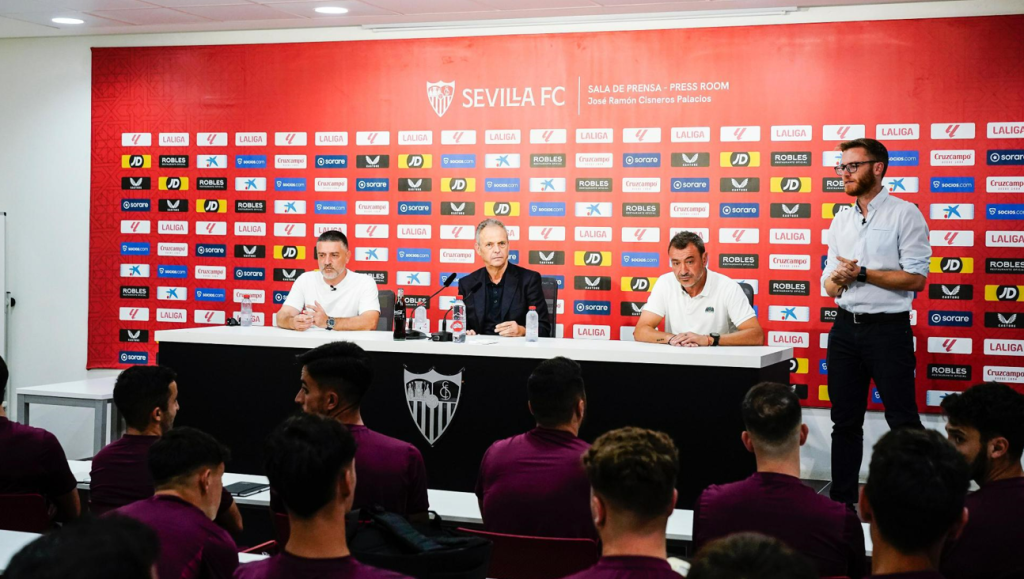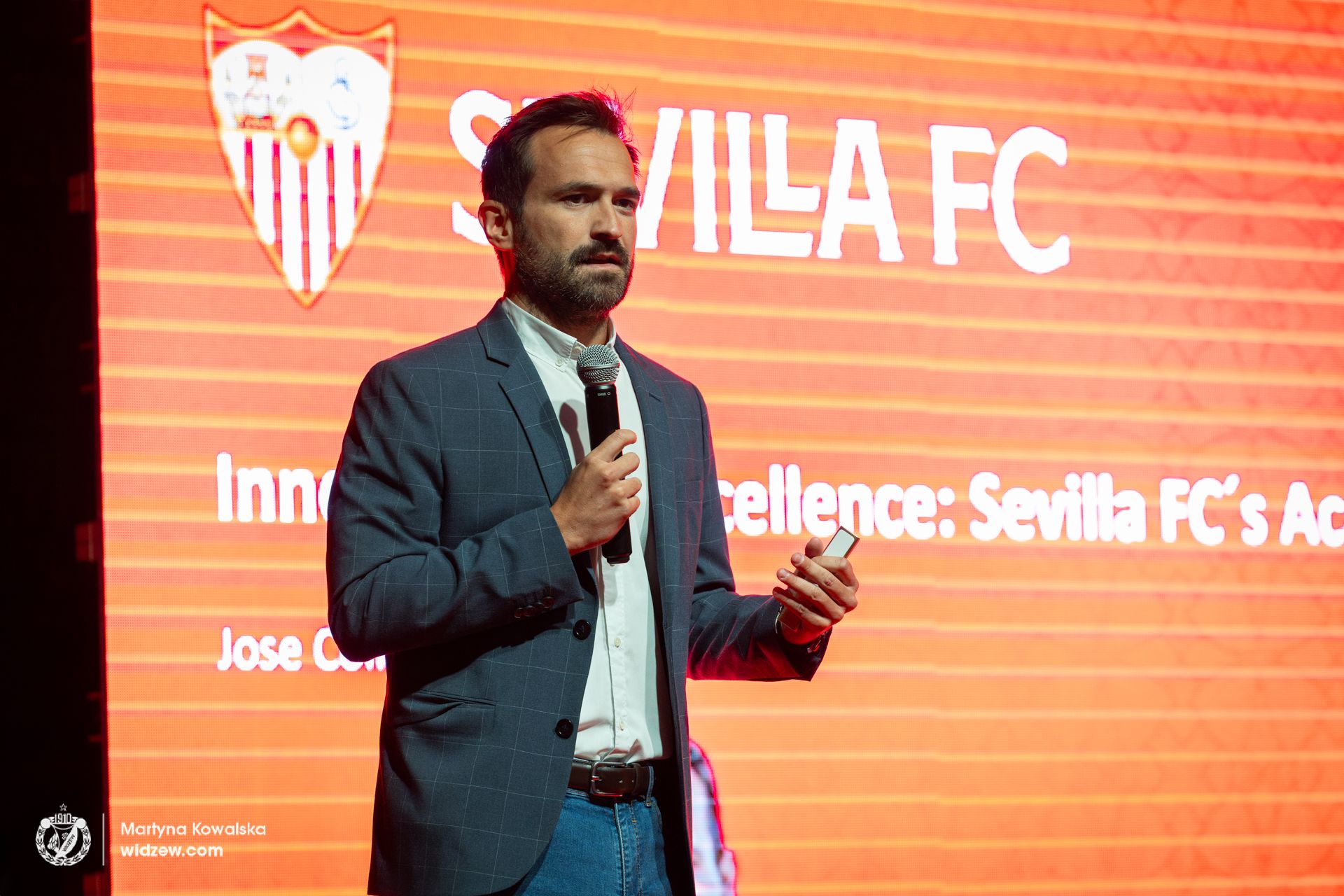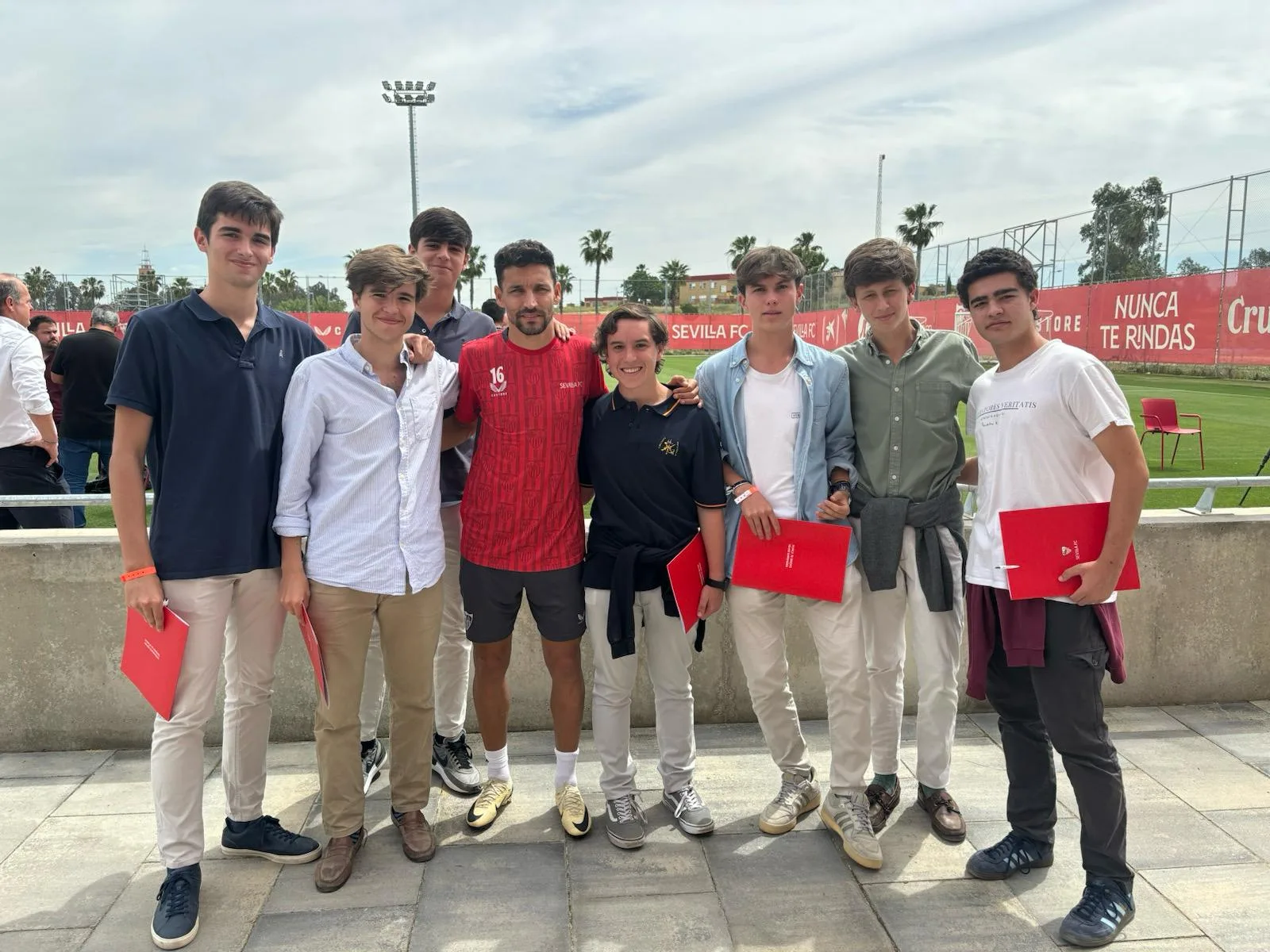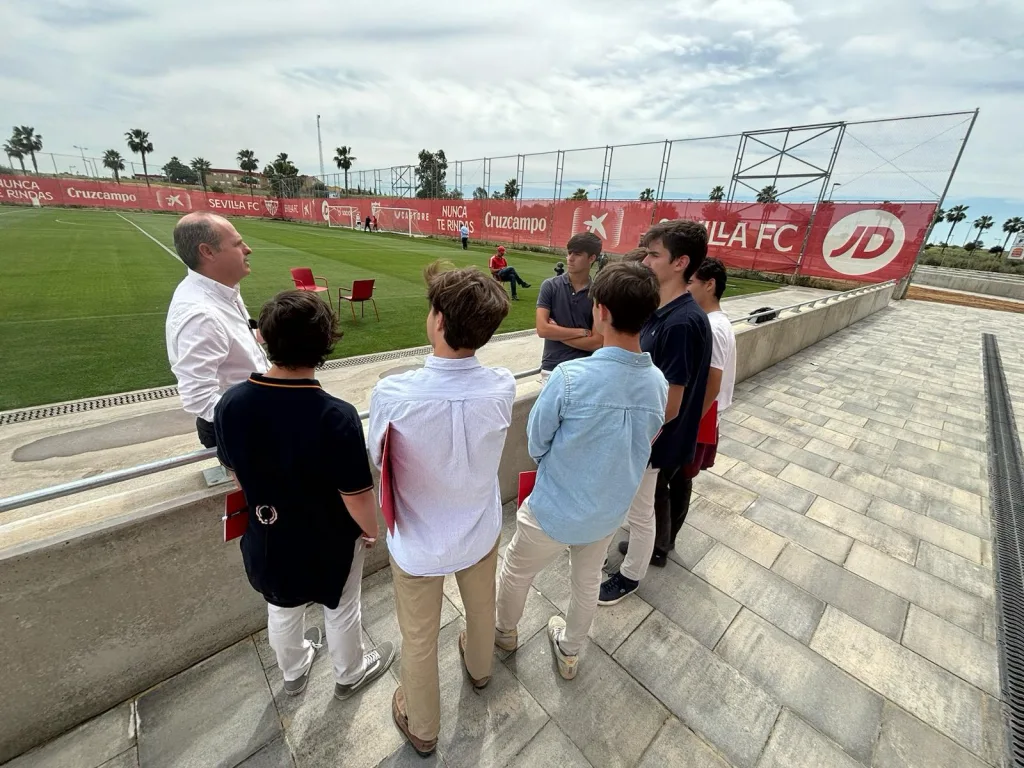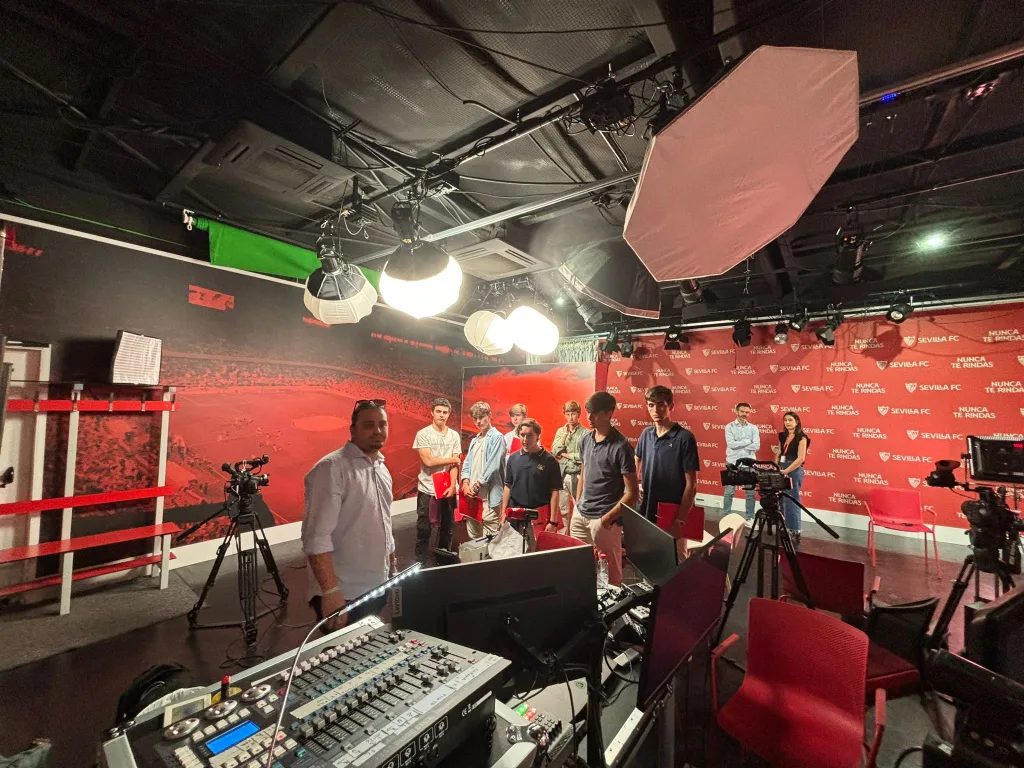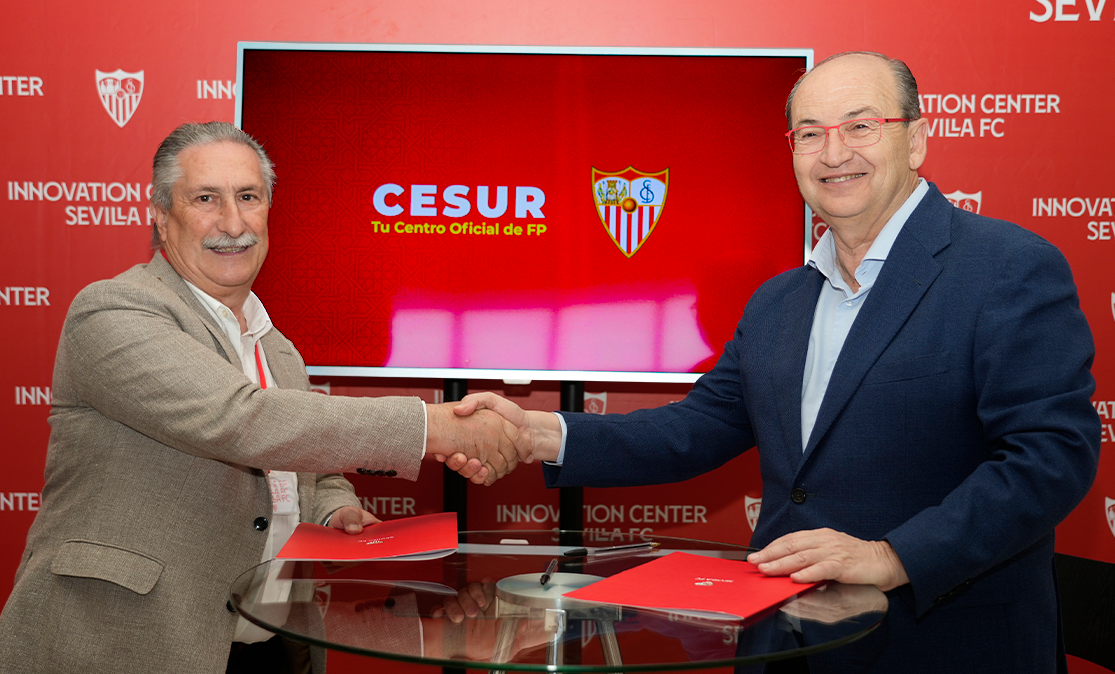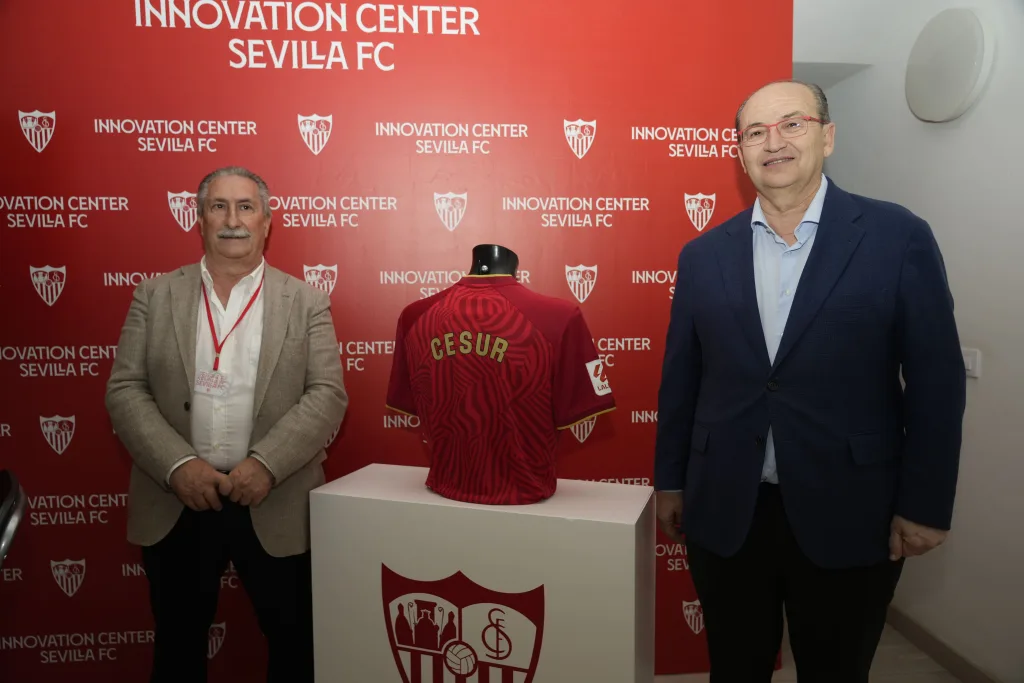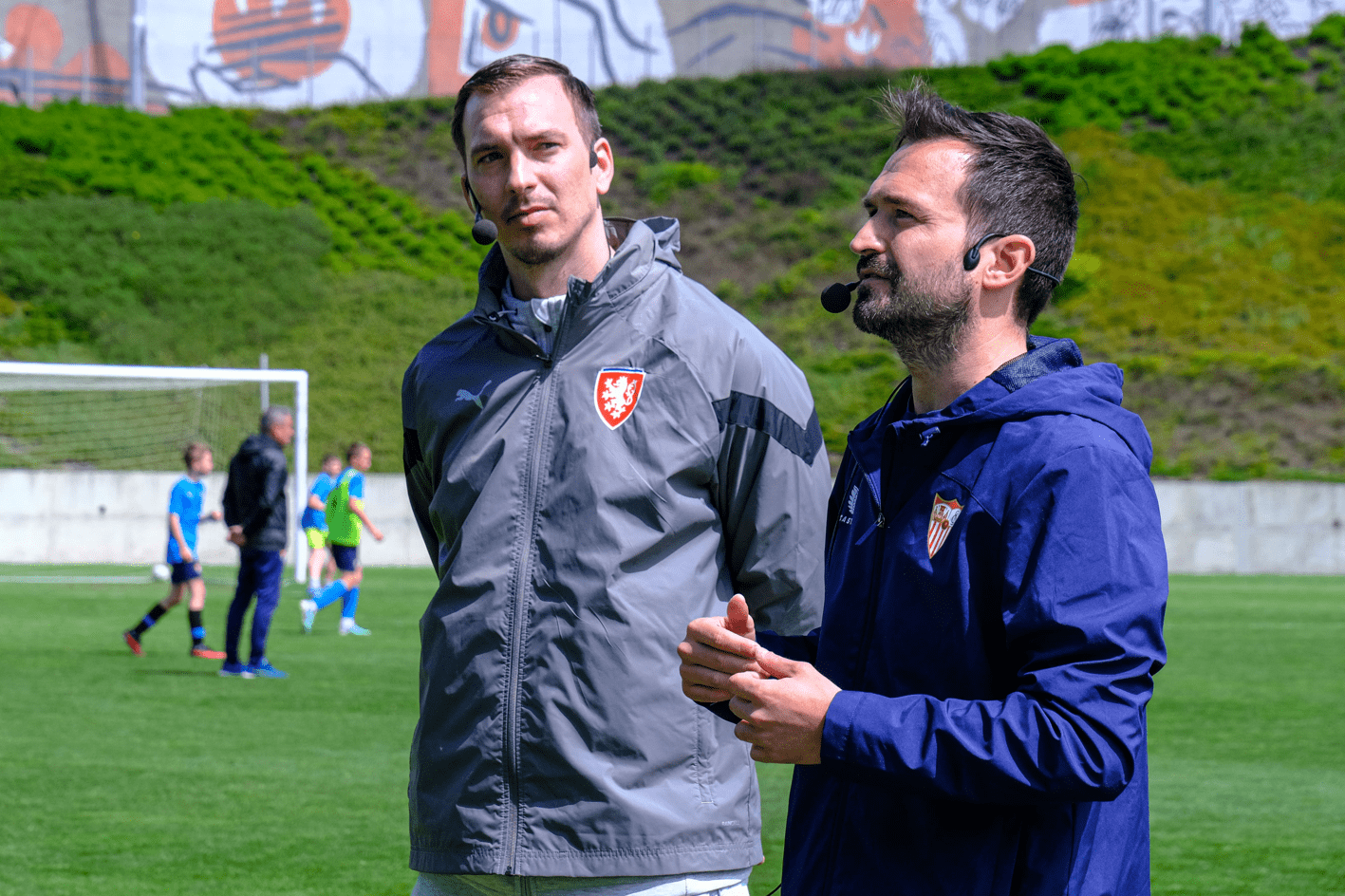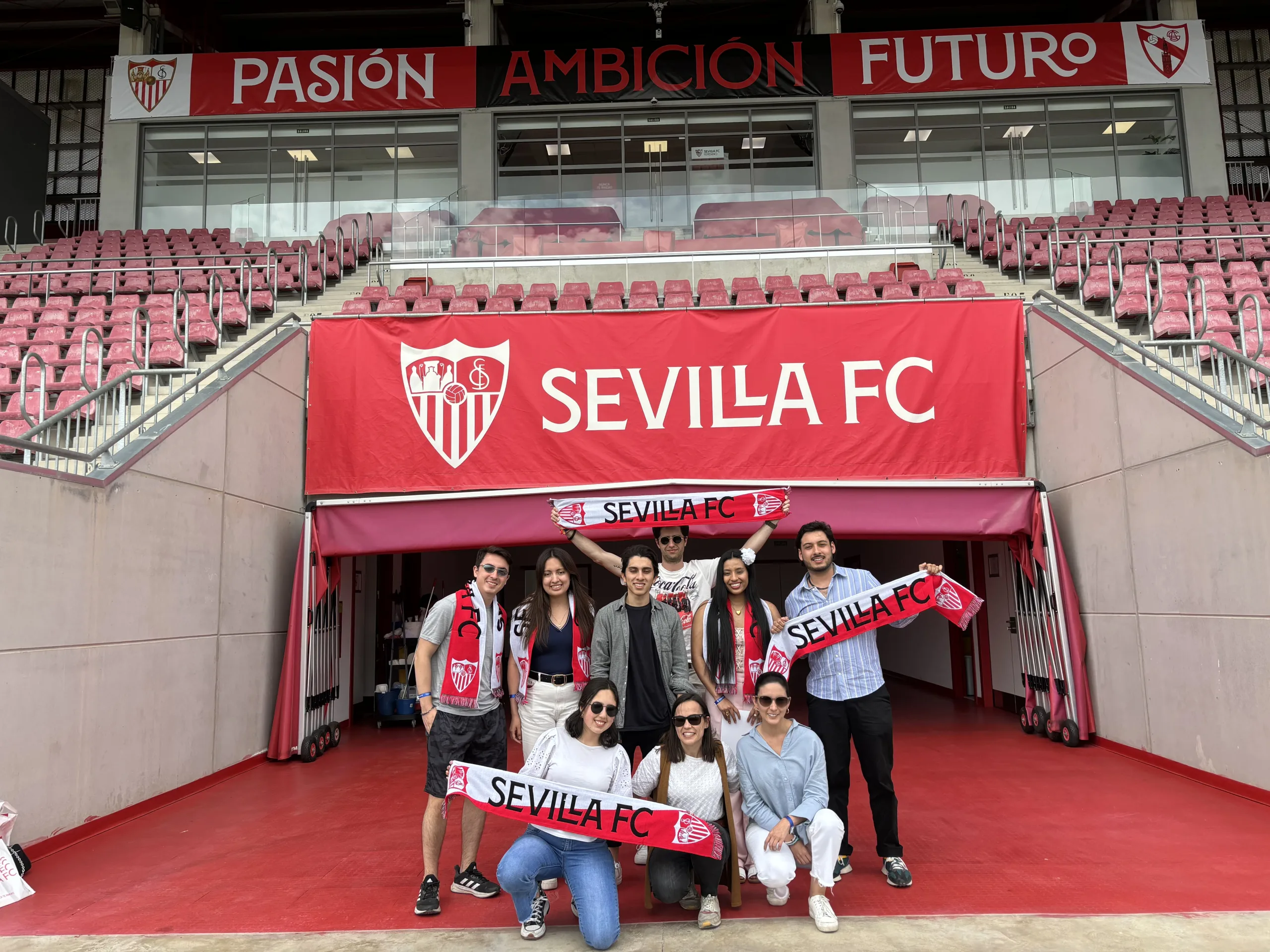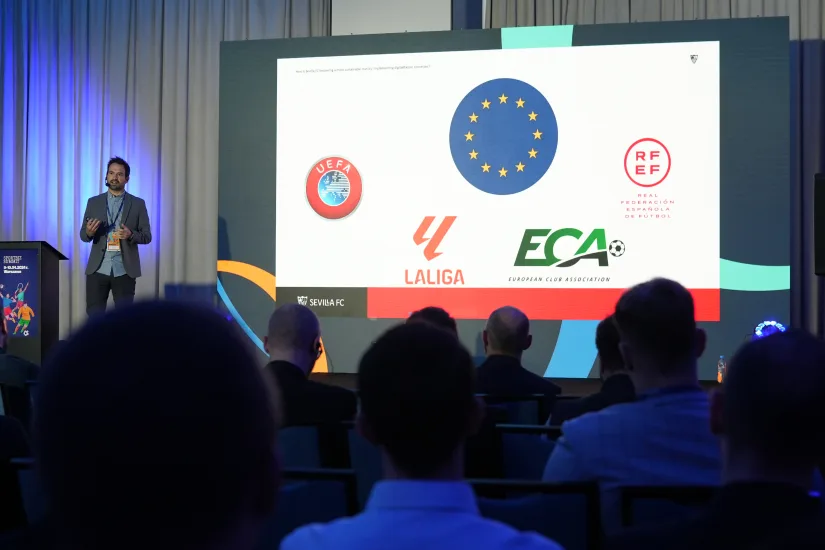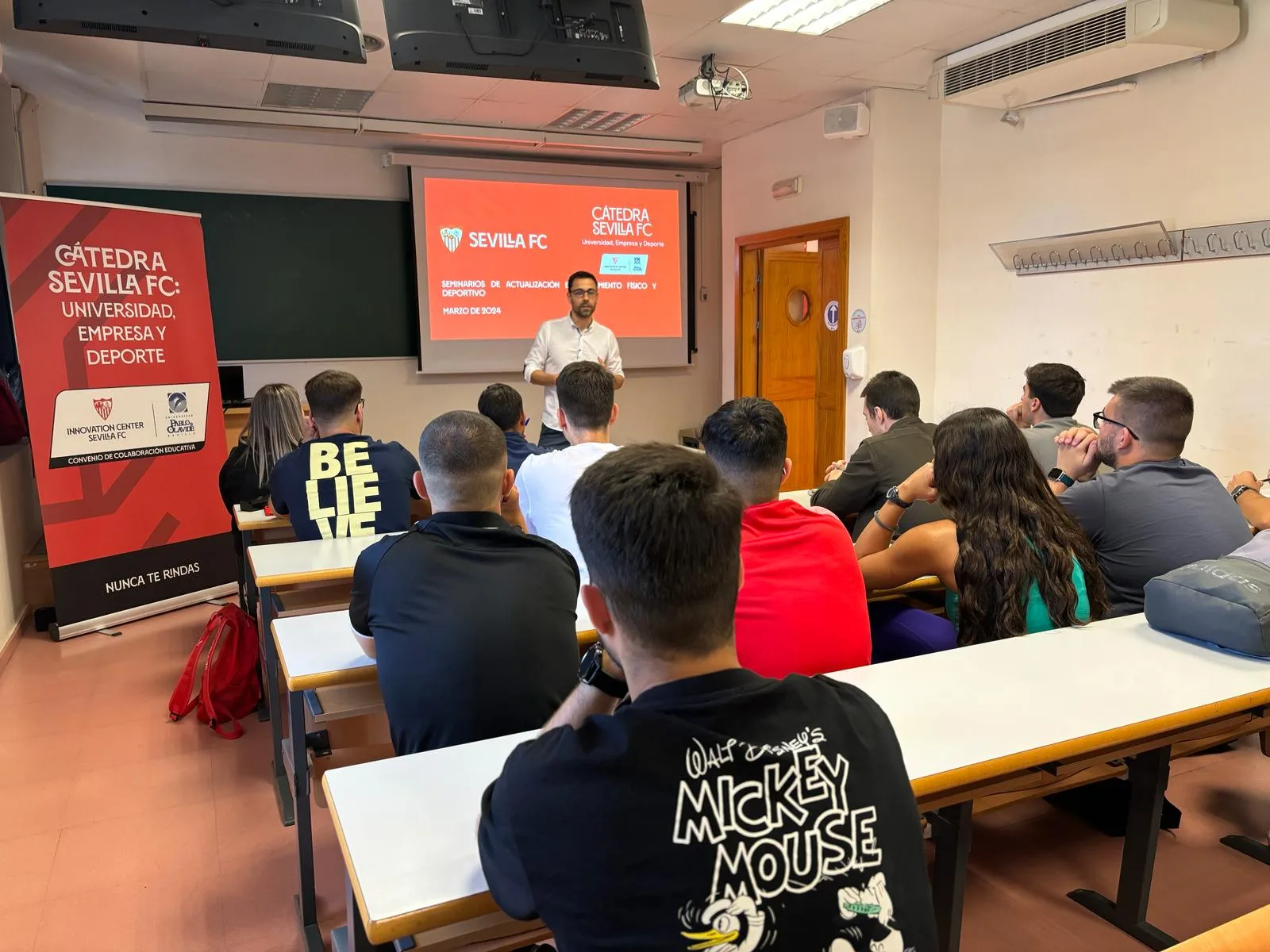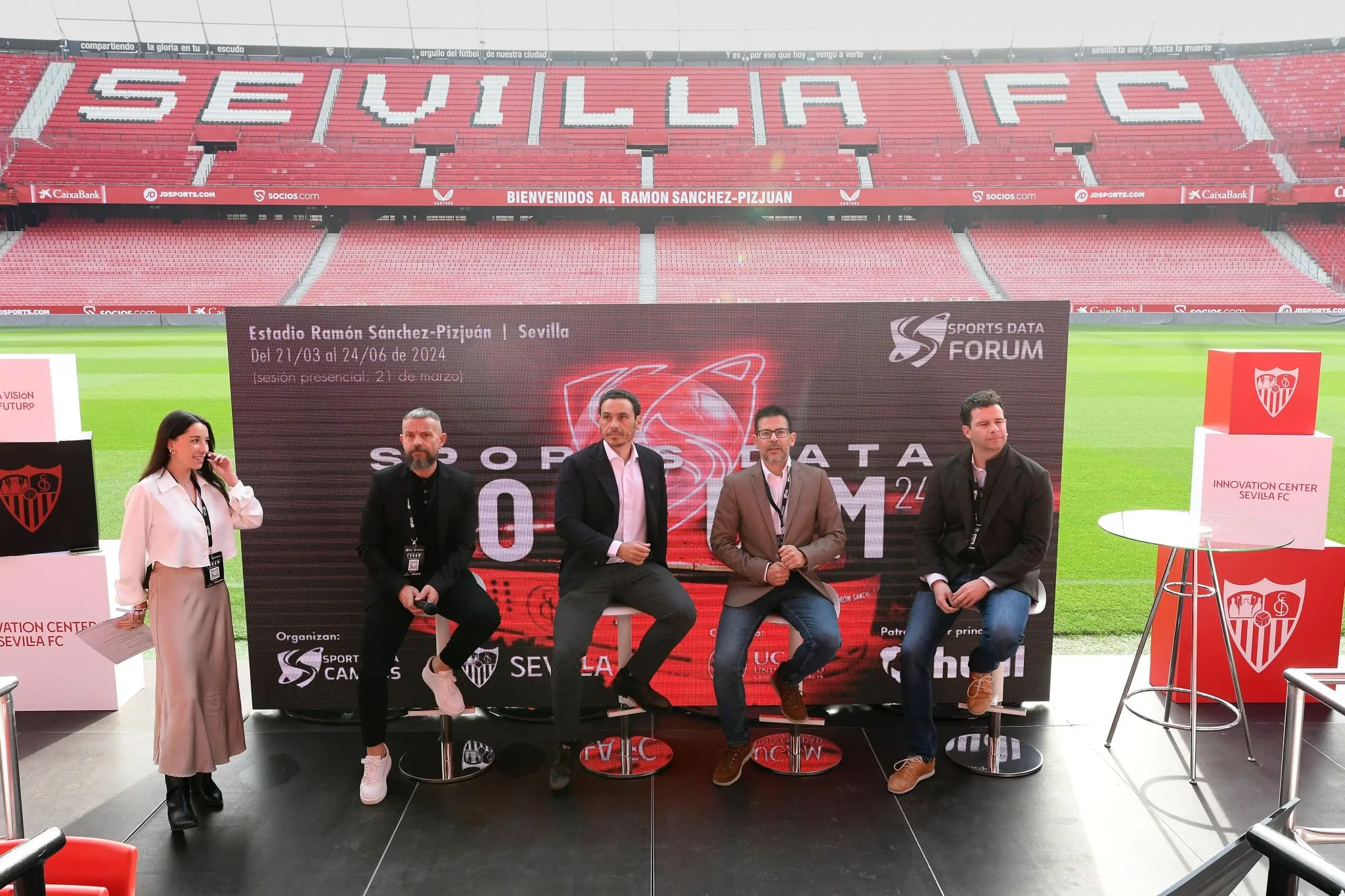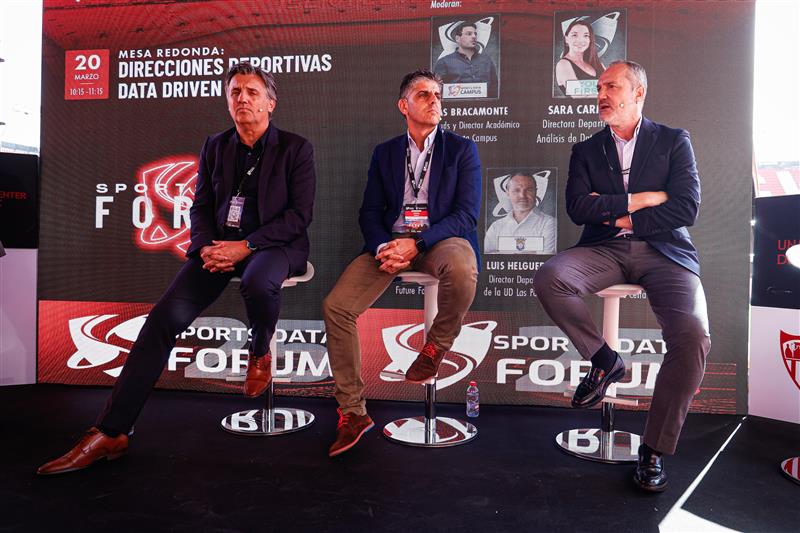
El Sport Data Forum 2025 aborda la evolución de las Direcciones Deportivas Data Driven
Romeo Jozak (director técnico del Future Falcons), Luis Helguera (director deportivo de la UD Las Palmas) y Eduardo Covelo (exdirector de metodología del RC Celta de Vigo) debatieron sobre la creciente integración de la tecnología y el dato en la toma de decisiones deportivas
La formación de jóvenes promesas es clave en todo plan estratégico dentro de una dirección deportiva. Lo sabe bien Romeo Jozak, director técnico del Future Falcons, quien intervino en el Sport Data Forum 2025 destacando la fuerte inversión que se llevará a cabo en los próximos años para fomentar el desarrollo de jóvenes futbolistas en Arabia Saudí. Subrayó que el país cuenta con un enorme potencial, pero que es fundamental educar a estos jugadores de manera profesional en Europa.
Además, Jozak mencionó la complejidad de gestionar la información en un país tan extenso y cómo están trabajando en la organización de datos para optimizar el rendimiento de los jugadores. En este sentido, enfatizó que existen grandes oportunidades laborales para jóvenes analistas españoles, quienes podrán aportar su conocimiento en el ámbito del análisis de datos y el desarrollo futbolístico.
Uno de los grandes objetivos de Future Falcons es identificar y distribuir talentos en ligas de élite con la meta de contar con 30 jugadores competitivos en la selección nacional en los próximos 10 años.
El equilibrio entre tecnología y experiencia
Eduardo Covelo, exdirector de metodología del RC Celta de Vigo, tomó la palabra en la ponencia para hacer hincapié en la necesidad de interpretar correctamente los datos dentro del contexto deportivo. Destacó que el dato y la tecnología deben ser un complemento y no un reemplazo de la experiencia y la intuición. Para Covelo, el éxito radica en el equilibrio entre estos dos factores, evitando caer en una dependencia absoluta de la analítica.
Asimismo, insistió en que identificar talento se ha vuelto más rápido y eficiente gracias a la tecnología, pero el gran desafío actual es no sólo detectar talento, sino también desarrollarlo. Además, anticipó que con el tiempo, muchos aspectos intangibles del fútbol podrán ser medidos con precisión, lo que abrirá nuevas oportunidades en la gestión deportiva.
Otro de los intervinientes, Luis Helguera (director deportivo de la UD Las Palmas) explicó que en la actualidad ya no existe una dicotomía entre el análisis de datos y la interpretación subjetiva del juego. En su opinión, el gran reto está en encontrar profesionales que sepan manejar los datos pero que, a la vez, comprendan el juego desde dentro.
Por ello, recomendó a los especialistas en datos que amplíen su formación con cursos de entrenador y otras herramientas del fútbol tradicional, de manera que puedan hacer una interpretación más funcional y útil de la información analítica. También resaltó la dificultad de encontrar perfiles híbridos que combinen el uso de la tecnología con el conocimiento profundo del juego, una necesidad creciente en las direcciones deportivas de los clubes.
Los tres expertos coincidieron en varios puntos fundamentales sobre la evolución de las direcciones deportivas basadas en datos, sobre todo a la hora de afirmar que el dato es clave, pero que sin pasión ni contexto pierde su valor real.
